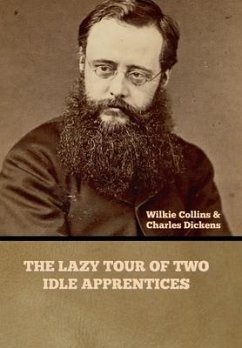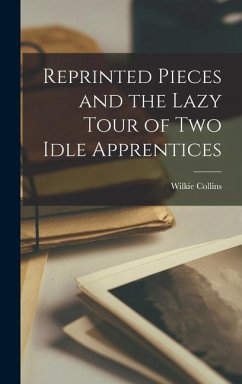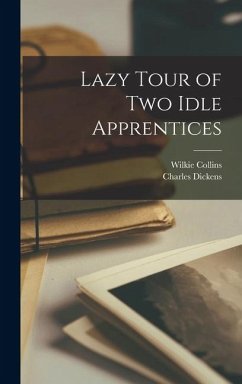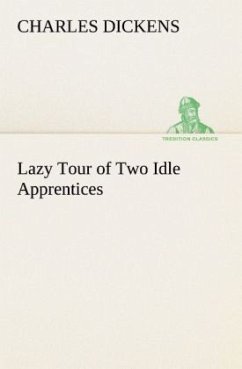
The Lazy Tour of Two Idle Apprentices
Versandkostenfrei!
Versandfertig in 1-2 Wochen
15,99 €
inkl. MwSt.
Weitere Ausgaben:

PAYBACK Punkte
8 °P sammeln!
...The Lazy Tour of Two Idle Apprentices was written as a collaboration between Charles Dickens and his great friend Wilkie Collins, to describe a walking tour the two had made together. During the September of 1857 they meandered through parts of the Lake District (named "Cumberland" at the time, and now "Cumbria"). What resulted is extremely whimsical, occasionally absurd, and it has to be said, very much of its time, with topical or earlier references some of us now struggle to recollect from history. But parts of it will either chill you to the bone or make you laugh out loud. ... (Bionic ...
...The Lazy Tour of Two Idle Apprentices was written as a collaboration between Charles Dickens and his great friend Wilkie Collins, to describe a walking tour the two had made together. During the September of 1857 they meandered through parts of the Lake District (named "Cumberland" at the time, and now "Cumbria"). What resulted is extremely whimsical, occasionally absurd, and it has to be said, very much of its time, with topical or earlier references some of us now struggle to recollect from history. But parts of it will either chill you to the bone or make you laugh out loud. ... (Bionic Jean)













